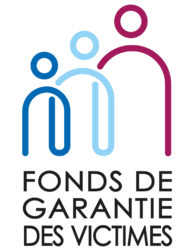Cap 2020 : Excellence in Serving Victims
Excellence in serving victims: it is for them that the Guarantee Fund for Victims, under the impetus of its Director-General, Julien Rencki, has been working on a business and transformation plan since September 2017.
This is a major challenge at a time when a growing number of citizens are facing terrorist and criminal violence as well as reckless driving. Called Cap 2020, this project aims to adapt the public service body to the change in scale of terrorist barbarity, but also to take better account of the expectations of victims by strengthening the support offered to them, both urgently and, above all, in the long term, with the compensation process adapting to the time of care.
It also involves strengthening the operational and economic performance of the Guarantee Fund for Victims by updating its internal operating methods and developing its influence. Victims need to know their rights !
Continous improvement in the quality of service to victims : the Guarantee Fund for Victims’ No. 1 priority
During the period of intense mobilisation following the dramatic attacks of the past two years, the Fund has also continued to update its practices, in order to be more attentive to victims and more compassionate in its procedures.
The continuous improvement of the quality of service to victims, in compliance with the principle of fair compensation, is indeed the top priority in the actions of the FGAO and FGTI.
This priority, carried by the Government and the governance of the Guarantee Fund for Victims, is central to the Guarantee Fund for Victims’ business plan.
CAP 2020 : Excellence in Serving Victims
In late 2016, the Director-General of the Guarantee Fund for Victims began to develop a business plan.
His goal ?
Excellence in serving victims.
Why a business plan ?
- To build the future of the Guarantee Fund for Victims.
- To meet the objectives set by the governance and the expectations of the government.
- To enhance the Fund’s know-how and ability to respond to the challenges it faces.
What are 4 key objectives ?
- Develop the quality of support for victims in the context of fair compensation.
- Strengthen the operational and economic performance of the Guarantee Fund for Victims.
- Develop the influence of the Guarantee Fund for Victims by combining professionalism, compassion, and innovation.
- Optimise its internal operations.
Initial progress for victims of terrorism
Concrete progress has already been seen on the commitments made by the FGTI in the agreement signed with the State.
Firstly, responsiveness in the event of a large-scale attack, in particular so that the Fund’s teams can, as they did in Nice, be on the ground very quickly and in contact with victims.
Secondly, the speed of implementation of the compensation. For example: within one month at the latest — and if possible within 10 days of the attack — the Guarantee Fund for Victims will pay an initial advance to the victims, or will send them a letter explaining why it is not in a position to do so.
Finally, the quality of support for victims. As such, medical examination guideline, drawn up by a working group set up by the FGTI and involving doctors, lawyers, and representatives of victims’ associations, were recently adopted. Similarly, the FGTI wants to ensure greater transparency and accessibility of the rules, which has resulted in the publication of a compensation guide (french version). Another important measure is the establishment of an independant ombudsman, within the FGTI and the FGAO, to whom any victim can turn in case of difficulty.
The proper implementation of the compensation procedure also implies taking better account of foreign victims in France and French victims abroad.
For example, in Nice, 45% of the deceased were of foreign nationality, and there were 53 different nationalities among the victims as a whole. This is why the FGTI is involved in the reflection initiated during the International Conference for Aid to Victims, which took place at UNESCO on 9 January 2017. The aim is to harmonise practices in the field of victim compensation at the international level. The FGTI intends to contribute to this approach by tangibly strengthening exchange and working relationships with European compensation parties, in order to ensure that all victims are compensated under satisfactory conditions of quality of service and level of compensation without borders being an obstacle.
The fulfilment of these commitments will be regularly evaluated, and victims themselves will be consulted on the perceived quality of the service they were provided.


